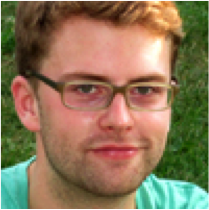It may be easy to think about studying the ocean by looking at a small section of it, but the reality is that water is constantly on the move. While highlighting his own research within the SPURS area, Julius Busecke will demonstrate how the atmosphere affects the water cycle both on land and in the ocean, and how the movement of seawater plays a crucial role in our understanding global ocean circulation.

Click
here for a transcript of the Q&A portion of this video (PDF, 84 KB).
Concept Map

Concept map developed for this webinar by Dr. Julius Busecke.
This webinar featured a series of three interconnected maps.
The first map explores how the atmosphere and land interact, and how there can be desert-like regions both on land and in the ocean.
Moving over to the ocean, the second map discusses how the atmosphere's wind, the rotating earth and the ocean surface interact to create the mixed layer and to setup ocean circulation.
The final map illustrates the lateral movement of water from the subtropics to the tropics, which affects the salinity in the SPURS research area.
Applicable Next Generation Science Standards
Influence of Engineering, Technology, and Science on Society and the Natural World
Crosscutting Concept: New technologies can have deep impacts on society and the environment, including some that were not anticipated. Analysis of costs and benefits is a critical aspect of decisions about technology (HS-ESS2-2).
- [HS-ESS2-2] Analyze geoscience data to make the claim that one change to Earth’s surface can create feedbacks that cause changes to other Earth’s systems.
Disciplinary Core Idea
Variations in density due to variations in temperature and salinity drive a global pattern of interconnected ocean currents (MS-ESS2-6).
- [MS-ESS2-6] Develop and use a model to describe how unequal heating and rotation of the Earth cause patterns of atmospheric and oceanic circulation that determine regional climates.
Resources
About the Presenter
Changes in Latitude
Presented by Dr. Julius Busecke - September 17, 2013
At the time of this webinar,
Julius Busecke was a Graduate Research Assistant at Lamont-Doherty Earth Observatory, Columbia University.
He is now a Postdoctoral Research Associate at Princeton University, studying Oceanography with a focus on oceanic eddy mixing and biogechemistry.
He received his B.Sc. from the University of Kiel, Germany in 2010.


